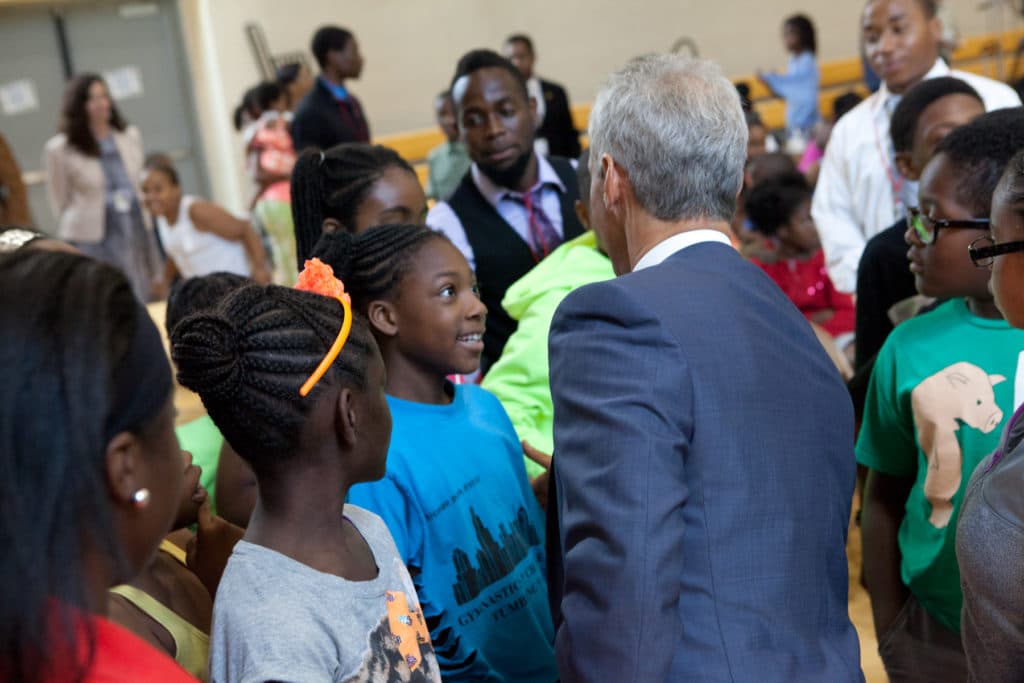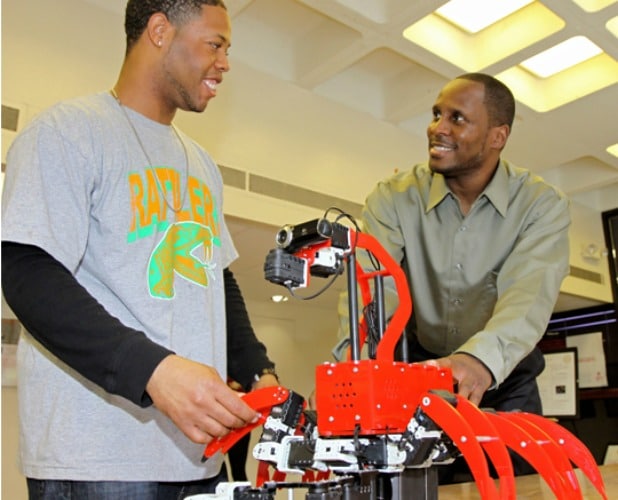When most people think about universities and colleges producing the innovators and thought leaders of tomorrow, they typically imagine Ivy League schools that tend to lack in diversity. The innovators in their minds typically take on the form of Mark Zuckerberg or Bill Gates as white males have been known to dominate the tech space.
As it turns out, however, Historically Black Colleges and Universities (HBCUs) all across the nation are home to some bright minds that have already made major steps in scientific advancement and technological innovation.
Perhaps two of the most attention-grabbing developments from HBCU students are a hypoallergenic peanut in the works and patent-driven developments on what could soon become the most efficient self-parking and self-driving car to date.
Agricultural researchers at North Carolina A&T University in Greensboro, North Carolina, are leading efforts to perfect a process that could eliminate allergens from a peanut without impacting its taste.
Peanut allergies are among the most common allergies Americans face, which makes the researchers’ work all the more important.
The innovative minds behind the project are hoping to reduce the allergenic properties in peanuts by as little as 30 percent and as much as 100 percent.
This would ultimately mean people who have long suffered from peanut allergies would no longer have anything to worry about.
The researchers already have a patent filed for the technology they are using to create the hypoallergenic peanut.
Meanwhile, another patent filed by students at Florida A&M University in Tallahassee, Florida, has garnered just as much attention.
These two inventors, Sihle Wilson and Ronald Benson, are helping to make major technological advancements as consumers have their fingers crossed for the first self-driving and self-parking car to hit the market soon.
It’s a project that tech giants like Google have also been embarking on, and BMW recently unveiled a car that has the potential to locate its own parking spot.
While these companies have made major strides and seem to be on the brink of figuring out how to efficiently get a car to park itself under any circumstances, there are major bugs in the system that are preventing the futuristic cars from becoming a reality for consumers.
The two Florida A&M University software engineers may be able to make the final push to perfect such complicated technologies.
Their “Autonomous Passenger Retrieval System for Automobiles” uses artificial intelligence to give vehicles some impressive features, their parent file suggests. These impressive features, such as detecting people and other cars, would be able to help the vehicle steer itself and safely find a parking spot until its owner returns.
“The automated driving system also is configurated to direct a vehicle to its owner and detect the presence of another vehicle or pedestrian to evade potential collisions,” Black Engineer wrote of the two students’ project. “Wilson and Benson further designed the valet process to be built into a vehicle as standard/optional equipment or as an add-on part.”
Such major contributions to science and technology coming from HBCU-affiliated researchers and students serve as proof that the nation has a lot to gain from investing in Black students.
For this reason, Dr. John Michael Lee, the vice president of the Association of Public and Land-grant Universities, hopes HBCUs will continue to “foster innovation” and “commercialization” to give their students the chance to compete in the tech world on a global scale.
He also hopes federal efforts will continue to contribute to bright Black minds that have the potential to revolutionize science and technology for the better.
So far, President Barack Obama has launched a massive campaign that helped push for $260 million in public-private financial commitments for increased STEM literacy.
The National Science Foundation has also been a huge support system for Black innovators and HBCU students.
The foundation reports that HBCUs received $547 million in research and development dollars in 2011. Those NSF grants included a total of $350,000 that was awarded to students at Tuskegee University back in 2012 so they could further their studies of the “interplay between psychosocial and academic structural factors that affect retention of minority students at HBCUs,” Black Engineer reported.
The stunning amount of financial backing for HBCUs is a positive sign that the NSF has faith in what these students have the ability to accomplish, discover and invent.
Now, Lee says, the spotlight is on the individual HBCUs to step up and make sure they continue growing their historic institutions into hubs that foster creativity and innovation.
“HBCUs must invest in the infrastructure to deliver innovation and entrepreneurship including creating opportunities for students to take a leading role in developing and producing innovation, create tech transfer officers to facilitate student and faculty start-ups, idea incubation and commercialization, create new institutional courses, change faculty pedagogy and develop partnerships that will lead to success for students at HBCUs,” Lee said, according to Black Engineer.







